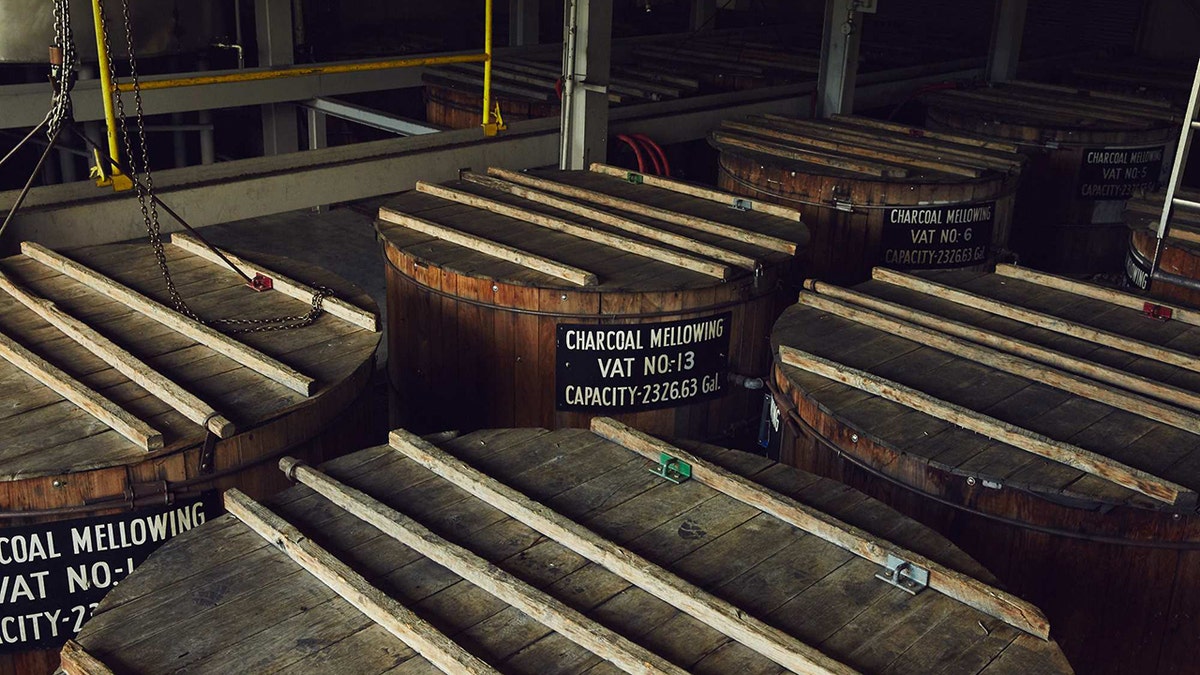
A group of bipartisan lawmakers on Capitol Hill are trying to end a tariff on American liquor exports to Europe that could bump up to a whopping 50% on Jan. 1.
In 2018, President Donald Trump set heavy tariffs on most European steel and aluminum imports to the U.S,, including from allies in the European Union, in an effort to boost American manufacturing.
The EU, infuriated by the decision, set retaliatory tariffs on American products, including whiskey and spirits. There was a mutual agreement struck between the Biden administration and the EU to temporarily suspend the burdensome tariffs. But the deadline on that suspension is Jan. 1, 2024. Unless an agreement is reached before the New Year, the tariff will be reimposed and doubled to 50%.
‘Spirits have had a significant cultural impact in our country, and currently have a profound impact on the U.S. economy. In 2022 alone, U.S. distilled spirit exports reached $2.06 billion. But the impact of the retaliatory tariffs was devastating,’ a group of bipartisan senators wrote to the Biden administration.
‘There are mutual benefits in finding a path forward, and our belief is that spirits and wines are a point where there can be consensus to limit the damage for all parties,’ they said.
In the letter, addressed to U.S. Trade Representative Katherine Tai, and led by Sens. Tim Kaine, D-Va., and Mark Warner, D-Va., along with Minority Leader Mitch McConnell, R-Ky., and a dozen others, the lawmakers contend that for the American whiskey industry, exports decreased from $702 million to $440 million, a loss of 20%, between 2018 and 2021.
In 2022, American spirits exports rebounded over 2017 pre-tariff levels – the last full year before retaliatory tariffs – due in large part to the suspension of tariffs, the lawmakers claim.
For many in the hospitality industry and others such as retailers, grocers, importers and distributors, many of which are small, locally-owned businesses, the impact was severe, compounded by the onset of the COVID-19 pandemic, they argue.
A report in the Wall Street Journal described the ‘bar fight over whiskey’ as just a sample of what harm the retaliatory tariffs have caused other homegrown small businesses.
EU tariffs retaliating against the U.S. also struck Harley-Davidson motorcycles, orange juice and Levi’s jeans. Like whiskey, those products remain on the EU’s list of suspended tariffs, the WSJ reported.
President Biden and the EU met in October in hopes of reaching a new agreement over the tariffs, but to no avail.
On Thursday, the biggest national trade association, Distilled Spirits Council of the United States, along with over 100 trade organizations representing a variety of interests, signed a statement saying, ‘the prospect of the return and increase of retaliatory tariffs in the steel and aluminum dispute, barely a month away, is causing unbearable uncertainty and instability for unrelated sectors.’
The groups say the prospect of the reimposition of duties on their products, ingredients and raw materials caught up in the steel and aluminum dispute would amount to more than $1.43 billion.
Brooke Glover, owner of Swilled Dog distillery in West Virginia, told the Wall Street Journal that she’s been wanting to ship her award-winning whiskey to her fans across the pond, but with the looming tax increase over a dispute unrelated to her industry, she can’t yet make those plans.
‘We’re just collateral damage,’ Glover told the outlet.

A group of bipartisan lawmakers on Capitol Hill are trying to end a tariff on American liquor exports to Europe that could bump up to a whopping 50% on Jan. 1.
In 2018, President Donald Trump set heavy tariffs on most European steel and aluminum imports to the U.S,, including from allies in the European Union, in an effort to boost American manufacturing.
The EU, infuriated by the decision, set retaliatory tariffs on American products, including whiskey and spirits. There was a mutual agreement struck between the Biden administration and the EU to temporarily suspend the burdensome tariffs. But the deadline on that suspension is Jan. 1, 2024. Unless an agreement is reached before the New Year, the tariff will be reimposed and doubled to 50%.
‘Spirits have had a significant cultural impact in our country, and currently have a profound impact on the U.S. economy. In 2022 alone, U.S. distilled spirit exports reached $2.06 billion. But the impact of the retaliatory tariffs was devastating,’ a group of bipartisan senators wrote to the Biden administration.
‘There are mutual benefits in finding a path forward, and our belief is that spirits and wines are a point where there can be consensus to limit the damage for all parties,’ they said.
In the letter, addressed to U.S. Trade Representative Katherine Tai, and led by Sens. Tim Kaine, D-Va., and Mark Warner, D-Va., along with Minority Leader Mitch McConnell, R-Ky., and a dozen others, the lawmakers contend that for the American whiskey industry, exports decreased from $702 million to $440 million, a loss of 20%, between 2018 and 2021.
In 2022, American spirits exports rebounded over 2017 pre-tariff levels – the last full year before retaliatory tariffs – due in large part to the suspension of tariffs, the lawmakers claim.
For many in the hospitality industry and others such as retailers, grocers, importers and distributors, many of which are small, locally-owned businesses, the impact was severe, compounded by the onset of the COVID-19 pandemic, they argue.
A report in the Wall Street Journal described the ‘bar fight over whiskey’ as just a sample of what harm the retaliatory tariffs have caused other homegrown small businesses.
EU tariffs retaliating against the U.S. also struck Harley-Davidson motorcycles, orange juice and Levi’s jeans. Like whiskey, those products remain on the EU’s list of suspended tariffs, the WSJ reported.
President Biden and the EU met in October in hopes of reaching a new agreement over the tariffs, but to no avail.
On Thursday, the biggest national trade association, Distilled Spirits Council of the United States, along with over 100 trade organizations representing a variety of interests, signed a statement saying, ‘the prospect of the return and increase of retaliatory tariffs in the steel and aluminum dispute, barely a month away, is causing unbearable uncertainty and instability for unrelated sectors.’
The groups say the prospect of the reimposition of duties on their products, ingredients and raw materials caught up in the steel and aluminum dispute would amount to more than $1.43 billion.
Brooke Glover, owner of Swilled Dog distillery in West Virginia, told the Wall Street Journal that she’s been wanting to ship her award-winning whiskey to her fans across the pond, but with the looming tax increase over a dispute unrelated to her industry, she can’t yet make those plans.
‘We’re just collateral damage,’ Glover told the outlet.














